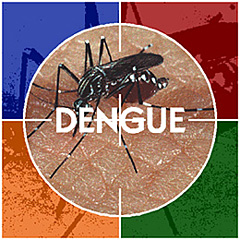Fewer Confirmed Dengue Fever Cases in Mexico in 2015
 |
| Last May, the Jalisco Health Secretariat launched “Operation Dengue and Chikungunya” an interstate effort in Nayarit, Jalisco and Colima to reduce the population densities of the aedes aegypti mosquito. |
Mexico City – The actual number of confirmed dengue fever cases were down in 2015 compared to the previous year, according to data published by the General Director of Epidemiology at the Mexican Health Ministry.
There were 21,201 confirmed dengue fever cases, 5,464 confirmed cases of dengue hemorrhagic fever and 42 dengue related fatalities in 2015, all down from 2014 when the numbers were 23,374; 8,647 and 76, respectively.
 |
In 2015, 50% of cases were from the following five states: Veracruz, Sonora, Jalisco, Guerrero and Michoacan. Six out of 10 dengue fever cases were reported in women.
However, in terms of probable dengue fever cases (defined as a person who has a fever or history of fever for 2-7 days duration, two or more symptoms of dengue and one serological test positive or epidemiological nexus with confirmed dengue case 14 days before onset of symptoms, according to the Pan American Health Organization), the numbers in 2015 were up dramatically.
Through the 52 epidemiological weeks of 2015, 219,593 probable dengue fever cases were reported, up from 124,505 cases in 2014. Veracruz, Jalisco and Colima states each reporting in excess of 20,000 probable dengue cases.
Dengue fever is an infectious disease carried by mosquitoes and caused by any of four related dengue viruses. This disease used to be called “break-bone fever” because it sometimes causes severe joint and muscle pain that feels like bones are breaking.
People get the dengue virus from the bite of an infected Aedes mosquito. It is not contagious from person to person.
There are three types of dengue fever in order of less severe to most: the typical uncomplicated dengue fever, dengue hemorrhagic fever, and dengue shock syndrome.
The World Health Organization estimates there may be 50–100 million dengue infections worldwide every year. However, new research from the University of Oxford and the Wellcome Trust, using cartographic approaches, estimate there to be 390 million dengue infections per year worldwide.